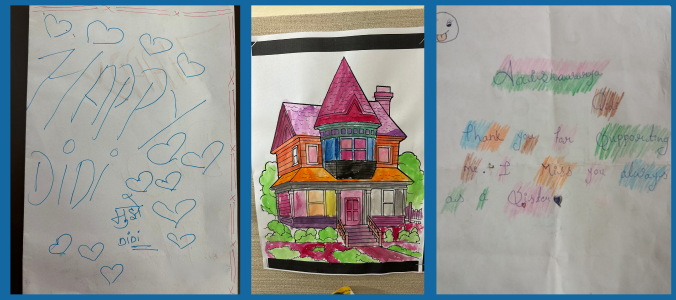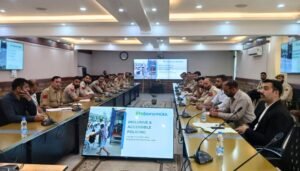
At iProbono, we recognise that structural change requires a holistic approach. Our comprehensive care program ensures that we go beyond providing legal assistance to vulnerable people and communities, and offers a set of holistic interventions to address essential needs. This includes assistance in accessing healthcare, education, mental health support, access to emergency services and resources, as well as vocational skills and training.
A large part of our comprehensive care work focuses on providing psycho-social support to survivors of child sexual abuse. Since 2022, our team of social workers and a mental health professional have offered such care to more than 400 child survivors of sexual abuse.
Why Comprehensive Care Matters for Child Survivors
In 2022, over 162,000 cases of child sexual abuse were reported in India, according to the National Crime Records Bureau. Another study by Child Rights and You (CRY) found that cases of child sexual abuse went up by 96% between 2016 to 2022, which is an indicator of how grave the issue is.
The governing law for such crimes is the Protection of Children against Sexual Offences (POCSO) Act. The law lays down stringent penalties for the offenders. Importantly, it also recognises the need for rehabilitation of survivors, and establishes the role of Support Persons towards this goal.
A Support Person may be an individual or organisation working on child rights, an official from a children’s home or shelter home having custody of the child, or an employee of the District Child Protection Unit (DCPU). The role of the Support Person is to ensure the well-being of a child throughout the legal proceedings. This includes assessing their emotional and psychological health and providing solutions where possible.
Support Persons also help the families understand and engage with the legal proceedings by explaining legal terminologies and processes to them.
At later stages, Support Persons accompany the child to courts for their testimony to ensure they are cared for, and legal procedures laid down for their well being are followed.
iProbono India has been appointed as a Support Person Organisation in Delhi’s South East and South districts of the Child Welfare Committee (CWC), to assist child survivors during trial and investigation.
iProbono India’s Comprehensive Care Work
The CWC refers the case to the Support Person organisation, whose social worker gets in touch with the guardian of the child, and identifies their urgent concerns.
Each case is different and requires diverse interventions. For example, we were directed by the CWC to support 8 year-old Alfiza*, who was repeatedly sexually abused by two minors and suffered medical complications due to the assault. The two accused were granted bail by the Juvenile Justice Board (JJB). Dismayed, Alfiza’s father refused to get her medical injuries treated until the accused were taken back into custody.
Our team sought the CWC’s intervention to counsel her father, who eventually agreed to her medical treatment. However, he was not able to be at the hospital with Alfiza, so we arranged for a team member to be present with her during her treatment instead.
In another case, a 7 year-old girl, Ruchi*, was sexually abused by her father’s colleague. The family faced intimidation from the accused’s acquaintances and were forced to relocate. We helped them access financial assistance, helped them file a police complaint, and highlighted their vulnerability and police inaction to the court. We also supported Ruchi’s admission in a local school, ensuring that the school authorities fulfilled their obligation per the CWC’s order.
Repeated Trauma beyond Child Sexual Abuse
Cases like these show the trauma faced by the survivors of abuse and their families. The first challenge they face is often in reporting the crime itself. In fact, many people choose not to pursue the cases legally due to the stigma that comes with sexual abuse. Or they are constrained by their fear of the police, lack of economic resources, and knowledge of the law. Thereafter, the need to repeatedly recount the abuse before various (often) insensitive stakeholders in the justice system and the prolonged judicial process also causes retraumatisation.
But when Support Persons are able to help survivors, a lot of their apprehensions are put to rest. Support Persons assist them through the often tedious and draining legal processes, and work towards them resuming their lives with dignity.
One of the most endearing parts of the job is when these children remember our team members and leave a note, a poem, or a drawing of themselves with their “favourite” bhaiya or didi (brother or sister). In one such gesture, a child survivor sent a hand-made birthday card to our team member which read, “I hope you like this card. I am lucky to have you as a supporter and brother.” Such tokens of love and appreciation from people we help keep us motivated on difficult days.
Given the gravity of the issue, our efforts might appear like a drop in the ocean. Yet, every drop counts. We are steadfast in our commitment to support children and their families who are determined to seek justice for survivors of sexual abuse, despite having limited resources.
*The names of the children have been changed to protect their privacy












